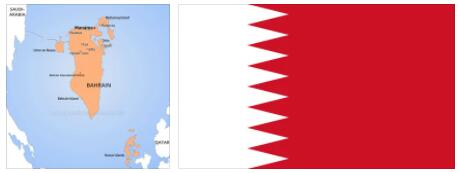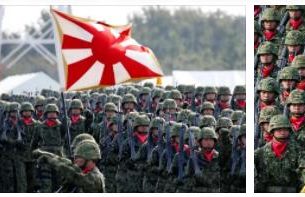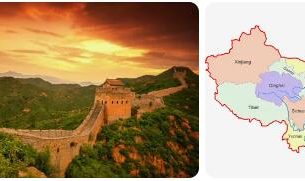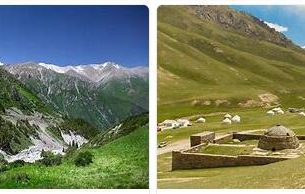Shopping
Overview
There are numerous large, air-conditioned shopping centers in Bahrain, of which the largest and most well-known, such as the Bahrain City Center or the Al ‘Ali Mall, are located in the Seef district. Imported goods from Western manufacturers are mainly on offer here, but Arabic clothing such as abaya (coat-like overgarment for men made of sheep’s wool or camel’s hair) or jalabiya (unfitted clothing) can also be found here. There is a branch of the French department store chain Géant in the Bahrain Mall. Exclusive luxury brands can be found in the Moda Mall in the Bahrain World Trade Center. Pearls are the most important domestic product. The Manama Tourist Office offers a variety of handicrafts. The famous red pottery comes from the village of A’ali. Weavers are based in Bani Jamra and basket weavers in Jasra. In the Adliya district there are a few shops selling classic souvenirs such as copper coffee cups, silver jewellery, lapis lazuli and carpets. Most of these items are imported from Yemen, India, Pakistan and Iran. Anyone who walks through the Bab al-Bahrain (Bahrain Gate) in Manama is immersed in the world of the souks, which come alive every evening. Exotic spices, hookahs and colorful fabrics are sold in the winding streets. A real experience, not only for shopping, is the gold souk with its shiny displays.
- Topmbadirectory: Offers information about politics, geography, and known people in Bahrain.
Opening hours
Sat-Thu 08.00-12.30 and 15.30-19.30, Fri 08.30-12.30. Some shops in the souks are also open on Friday mornings.
Culinary
Overview
There is a good choice of restaurants serving Arabic, European, Indian, Chinese, Japanese, Filipino, Mexican, Turkish, Thai, Lebanese and American cuisine among others. There are also some fast food chains. Fresh seafood dishes are offered at the Fish Market restaurants at Al Bander Resort. Hammour is a local fish very similar to grouper that is fried. Lamb is often on the menu, but chicken, turkey and duck are also available. Locals often eat vegetable curry with rice, yoghurt and khubz (flat bread). Mezze are small appetizing dishes such as hummus (mashed chickpeas), olives or chopped vegetables, served as a starter or as a snack between meals. Since almost exclusively Muslims live in Bahrain, no pork is offered.
Regional specialities
Machbous: Steamed fish or meat with rice. Muchammar: Sweet brown rice with sugar or dates. Baba ghanoush: Smoked eggplant, mashed garlic, yogurt and sesame paste. Shawarma: Lamb or chicken sliced off a rotating skewer and served in flat loaves. Sambousa: Crispy pastries filled with meat, cheese, sugar or nuts.
Useful information
Outside of the fasting month of Ramadan, alcohol (including the grape and aniseed liquor Arak) is served to non-Muslims in nightclubs, good restaurants and luxury hotels. Drinking alcohol in public outside of these establishments is prohibited by law.
Tip
If the tip is not included in the bill, 10% is appropriate. Taxi drivers and porters also expect 10%.
Regional drinks
Strong Arabic coffee and tea are available throughout.
Minimum age for consumption of alcoholic beverages
In Bahrain, the minimum drinking age is 18 years.
Accommodation
Hotels
The selection ranges from 5, 4 and 3 star hotels to cozy family hotels and 1 star accommodation. Luxury hotels offer a high international standard, the larger hotel chains such as Le Meridien, Sheraton, Hilton etc. are represented. Complimentary airport transfers can be arranged from 5 and 4 star hotels upon request. Information on package deals from the Bahrain Tourism Company (see addresses).
Culture
Religion
100% Muslim (Shia (70%) and Sunni (30%, including the royal family)).
Social Rules of Conduct
General: The attitude towards women is more liberal than in other Gulf States. Drug possession is severely punished. Prostitution and homosexuality are punishable. At prayer time (five times a day) all other activities come to a temporary standstill. One should observe the Islamic manners and customs. During the month of fasting, non-Muslims are also prohibited from eating, drinking or smoking in public during the day. During the month of mourning, Muhharam (the first month in the Islamic calendar), restraint is also advised, particularly as a spectator during Ashura mourning processions. Social etiquette: Traditions persist and social interactions tend to be more formal. It is usual, Sitting cross-legged on a cushion or sofa, but never showing the soles of your feet as this is an insult. The left hand should never be used to give or receive anything. When inviting, it is considered polite to have two small cups of coffee or tea, with the cup always held in the right hand. Visitors to private homes will i. Generally expected to share the host’s bedroom as guest rooms are almost unheard of. Clothing: Smart, casual clothing is acceptable on the street, but knees and shoulders should be covered. Women should avoid plunging necklines. Arab women will only be seen in public wearing long sleeves. Photography: It is forbidden by law to photograph military installations.
Climate
Best travel time
Very hot and dry in summer (June to October) with temperatures up to 42°C, much cooler between December and March, especially in the evenings. Generally little rainfall, with a little more rain in winter. The most pleasant seasons are spring and autumn.
Country data
Phone prefix
+973
Area (sq km)
765
Population
1,701,575 (Source: homosociety)
Population density (per square km)
1,867
Population statistics year
2020
Main emergency number
990



